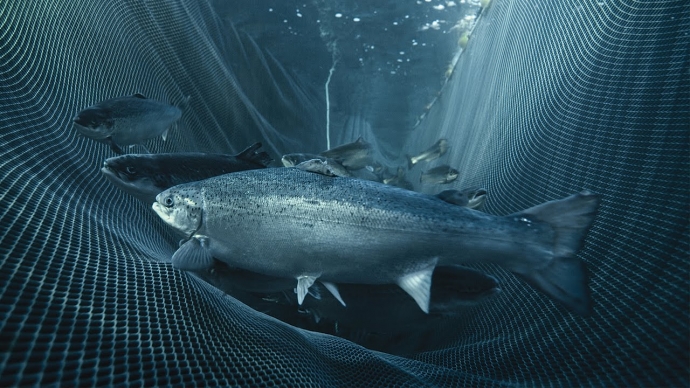Apparently climate change is producing such favourable conditions for Alaska sockeye salmon that they’re skipping an entire year in fresh water and heading out to sea big and strong. But as you know, every effect of climate change is bad and thus the poor little big fish are struggling to find ocean food because of fish farming. Or something. Something bad.
This study by University of Washington researchers begins by stating the blindingly obvious: Warmth is better for life than cold. The tropics teem with life. Antarctica not so much. The Mesozoic saw fantastic beasts like the hundred-ton Argentinosaurus, Triceratops and Spinosaurus, along with Quetzalcoatlus (whose wingspan was three times that of the largest modern bird) and under the water the Icthyosaurs and Mosasaurs. Ice ages by contrast were harmful or even lethal. So it’s not really surprising that “Higher temperatures in the region [Alaska] have caused lakes and rivers to warm up earlier each spring, fueling the growth of tiny plankton that young sockeye eat. This extra food essentially fattens up the fish a year earlier, triggering their migration to the ocean.”
Warmth is good up and down the food chain although nature being red in tooth, claw, beak, proboscis and so on, the plankton’s good fortune is the salmon’s good fortune which is the plankton’s bad fortune. And yes, probably out there in the ocean there’s something with salmon on the menu salivating. But what’s the drawback?
Well, if you think hard enough you’ll find something. In this case it’s that slower growth meant the same spawning year of sockeye wouldn’t all head for the open sea at the same time, so hypothetically a bad year might “devastate an entire age class.” And there’s more: “scientists don't know how many salmon the North Pacific can actually support.”
Now anybody with even a passing acquaintance with population dynamics knows that boom-and-bust cycles of prey then predators have been with us since the invention of the fang. So this is a bit of a stretch. But they’re just limbering up, so to speak.
"With climate change, is there a limit to how productive the ocean will become? We just don't know where there's a tipping point, especially as we fill the ocean with hatchery competitors," [University of Washington professor and senior study author Daniel] Schindler said. "We need to be really cognizant about overstressing the marine resources that support wild salmon." Like the comment wrongly attributed to Yogi Berra about the restaurant so popular nobody goes there any more, the ocean could become so abundant it gets deserted.
Only with climate change.


